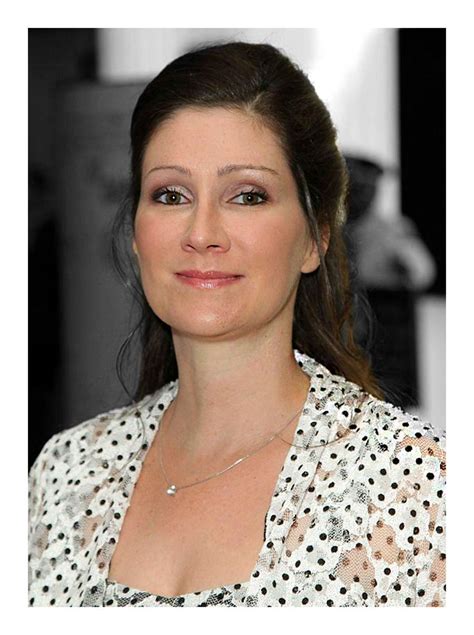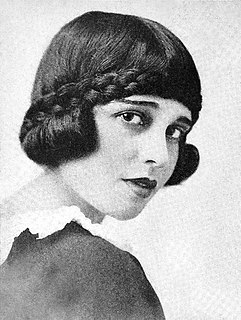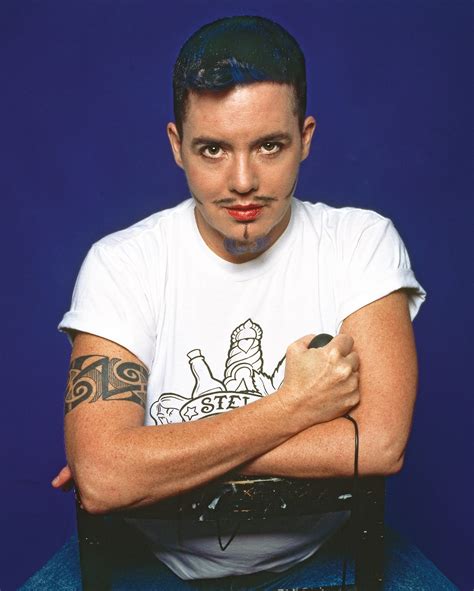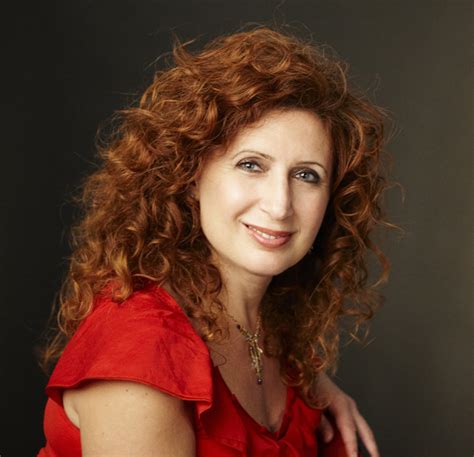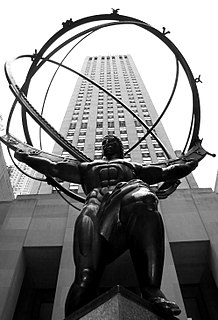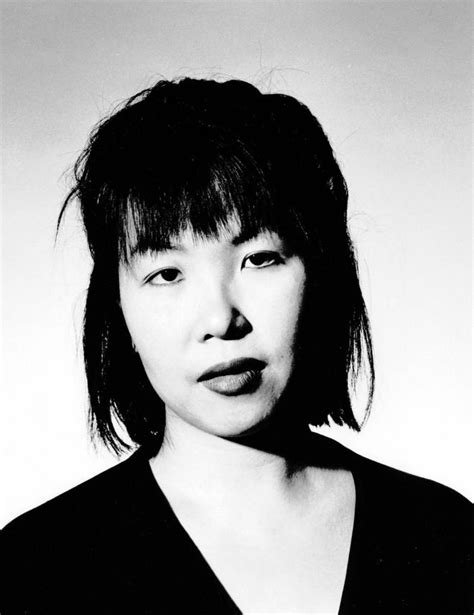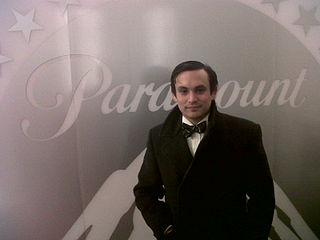Top 766 Roaring Twenties Quotes & Sayings - Page 13
Explore popular Roaring Twenties quotes.
Last updated on April 19, 2025.
A cold supper, were you thinking? I asked dubiously. I was not, he said firmly, I mean to light a roaring fire in the kitchen hearth, fry up a dozen eggs in butter, and eat them all, then lay ye down on the hearth rug and roger ye 'till you - is that all right? he inquired, noticing my look. 'Til I what? I asked fascinated by his description of the evening's program. 'Til ye burst into flame and take me with ye, I suppose, he said, and stooping, swooped me up into his arms and carried me across the darkened threshold.
Women smirk at baldness. How adorable would they find it if they began to lose their breasts in their late twenties? If both tits just shrunk up - unevenly I might add - and eventually turned into wine-cork nubs. Then it would be a different story. Then men would get the pity that they deserve. As far as I'm concerned, baldness is the male breast cancer only worse, because almost everyone gets it. True, it's not life threatening. Just social-life threatening. But in New York City, there is no difference.
I always say that my artist statement is to not be afraid to talk about the messiness - the unpleasant feelings and happenings around my life. I also try to convey what it feels like and sounds like and smells like and looks like inside of my particular skin, to move through the world as a black American woman in her mid-twenties. Language from songs and TV shows feel integral because it helps to create the environment and describe the full picture.
When you are five, you know your age down to the month. Even in your twenties, you know how old you are. I'm twenty-three you say, or maybe twenty-seven. But then in your thirties, something strange starts to happen. It is a mere hiccup at first, an instant of hesitation. How old are you? Oh, I'm--you start confidently, but then you stop. You were going to say thirty-three, but you are not. You're thirty-five. And then you're bothered, because you wonder if this is the beginning of the end. It is, of course, but it's decades before you admit it.
One Christmas at the very beginning of your twenties when your mother gives you a warm coat that she saved for months to buy, don’t look at her skeptically after she tells you she thought the coat was perfect for you. Don’t hold it up and say it’s longer than you like your coats to be and too puffy and possibly even too warm. Your mother will be dead by spring. That coat will be the last gift she gave you. You will regret the small thing you didn’t say for the rest of your life. Say thank you.
Some police forces would believe anything. Not the Metropolitan police, though. The Met was the hardest, most cynically pragmatic, most stubbornly down-to-earth police force in Britain. It would take a lot to faze a copper from the Met. It would take, for example, a huge, battered car that was nothing more nor less than a fireball, a blazing, roaring, twisted metal lemon from Hell, driven by a grinning lunatic in sunglasses, sitting amid the flames, trailing thick black smoke, coming straight at them through the lashing rain and wind at eighty miles an hour.That would do it every time.
I first read Freud's famous case study on hysteria based on his client Ida Bauer when I was in my twenties. It pissed me off so badly it haunted me for 25 years. But I had to wait to be a good enough writer to give Ida her voice back. And I had to go get my own first too. I not only know the case study inside and out, like most women, I lived a version of it. Maybe it's time for us to tell our versions.
I had grown up among engineers, and I could remember the engineers of the twenties very well indeed: their open, shining intellects, their free and gentle humor, their agility and breadth of thought, the ease with which they shifted from one engineering field to another, and, for that matter, from technology to social concerns and art. Then, too, they personified good manners and delicacy of taste; well-bred speech that flowed evenly and was free of uncultured words; one of them might play a musical instrument, another dabble in painting; and their faces always bore a spiritual imprint.
You'll find that marriage is a good short cut to the truth. No, not quite that. A way of doubling back to the truth. Another thing you'll find is that the years of illusion aren't those of adolescense, as the grown-ups try to tell us; they're the ones immediately after it, say the middle twenties, the false maturity if you like, when you first get thoroughly embroiled in things and lose your head. Your age, by the way, Jim. That's when you first realize that sex is important to other people besides yourself. A discovery like that can't help knocking you off balance for a time.
Mrs. Landingham, does the President have free time this morning? The President has nothing but free time, Toby. Right now he's in the residence eating Cheerios and enjoying Regis and Kathie Lee. Should I get him for you? Sarcasm's a disturbing thing coming from a woman of your age, Mrs. Landingham. What age would that be, Toby? Late twenties? Atta boy.
We have a game we play when we’re waiting for tables in restaurants, where you have to write the five things that describe yourself on a piece of paper. When I was [in my twenties], I would have put: ambitious, Wellesley graduate, daughter, Democrat, single. Ten years later not one of those five things turned up on my list. I was: journalist, feminist, New Yorker, divorced, funny. Today not one of those five things turns up in my list: writer, director, mother, sister, happy.
I didn't cry at my father's funeral, and I felt guilty about that. Of course, he got sick not too long after he and I had had that final altercation, and I felt real guilty because of that, too. Then years later, one day, I was probably in my late twenties, early thirties, and I just broke down crying, because I finally got my father.
O admirable Mother of God! How many sins have I committed for which thou hast obtained pardon for me, and how many others would I have committed if thou hadst not preserved me? How often have I seen myself on the brink of Hell in obvious danger of falling into it but for thy most benign hand which saved me? How often would the Roaring Lion of Hell have devoured and swallowed up my soul had not the charity of thy heart opposed him? Alas! Without thee, my dearest and my all-good Mother, where should I be today? I should be in the fiery furnace of Hell from which I would never emerge!
From early Colonial days, sex life in America had been based on the custom of men supporting women. That situation reached its heyday in the Twenties when it was easy for any dabbler in stocks to flaunt his manhood by lavishing an unearned income on girls. But with the stock-market crash, men were hard put even to keep their wives, let alone spend money on sex outside the home. The adjustment was much easier on women than on men, who jumped out of windows in droves, whereas I can't recall a single headline that read: KEPT GIRL LEAPS FROM LOVE NEST.
Growing up I wasn’t sure I was female. As I grew further I wanted to be a lesbian but I wasn’t sure I would meet even the most basic membership criteria (though eventually I created a ‘femme dyke’ persona that worked well for over fifteen years). It wasn’t until my early twenties that I was sure of at least one thing: I was an artist. Quite an accomplishment for anyone assigned female at birth in a culture that calls only male artists ‘great’.
Where was he, her Alexander, of once? Was he truly gone? The Alexander of the Summer Garden, of their first Lazarevo days, of the hat in his hands, white toothed, peaceful, laughing, languid, stunning Alexander, had he been left far behind? Well, Tatiana supposed that was only right. For Alexander believed his Tatiana of once was gone, too. The swimming child Tatiana of the Luga, of the Neva, of the River Kama. Perhaps on the surface they were still in their twenties, but their hearts were old.
Here is the tragedy of theology in its distilled essence: The employment of high-powered human intellect, of genius, of profoundly rigorous logical deduction—studying nothing. In the Middle Ages, the great minds capable of transforming the world did not study the world; and so, for most of a millennium, as human beings screamed in agony—decaying from starvation, eaten by leprosy and plague, dying in droves in their twenties—the men of the mind, who could have provided their earthly salvation, abandoned them for otherworldly fantasies.
My friend Madea has "attitude" that comes with wisdom. Back in our teens and twenties, we thought we knew everything and made all those foolish mistakes. Then, when we got a little older, at thirty, we started getting these flashes of light, revelations of what a great and lucky thing it is that we didn't get caught doing those stupid things back then. Around forty, if we are lucky, we stop lying to ourselves. Fifty and above, we've run out of patience for foolishness. Take me to the bottom line.
We must be educated in inner human modesty, so we can recognize that we are not, even for a moment, complete as human beings. Instead, we continue to develop from birth until death. We must recognize that every day of life has a special value, that it is not without purpose that we must learn to live through our thirties right after we have just gone through our twenties. We need to learn that each new day and each new year offers continual revelation.
The early twenties when we drank wood alcohol and every day in every way grew better and better, and there was a first abortive shortening of the skirts, and girls all looked alike in sweater dresses, and people you didn't want to know said "Yes, we have no bananas," and it seemed only a question of a few years before the older people would step aside and let the world be run by those who saw things as they were--and it all seems rosy and romantic to us who were young then, because we will never feel quite so intensely about our surroundings any more.
For me becoming a painter was an Everest, in terms of what I thought a painter was. There are many roads to becoming an artist. For me it wasn't art school. I didn't have that go to art school and then get a gallery. It's more like, how deep is your inner library to cull from. It's certainly not about technical prowess, just about depth of investigation. It takes time. I had 15 years of painting under my belt before my first New York show. I was glad to have that. It's a good thing to spend your twenties getting your craft.
As a young actor, there's a very small group of kids, just a handful. As you get older, all of a sudden, there's a bunch of guys your age that work. It's a very different experience when you used to be on the short list because you were young and there's only so many kids that can do the work and then all of a sudden you're in your twenties and thirties and there's a whole bunch of guys that can do your work.
In 1976 I was working in the Gulf Country around Cape York, in an aboriginal community of about 300 people. The Health Department sent around a team and vaccinated about 100 of them against flu. Six were dead within 24 hours or so and they weren't all old people, one man being in his early twenties. They threw the bodies in trucks to take to the coast where autopsies were done. It appeared they had died from heart attacks.
Even in such a time of madness as the late twenties, a great many man in Wall Street remained quite sane. But they also remained very quiet. The sense of responsibility in the financial community for the community as a whole is not small. It is nearly nil. Perhaps this is inherent. In a community where the primary concern is making money, one of the necessary rules is to live and let live. To speak out against madness may be to ruin those who have succumbed to it. So the wise in Wall Street are nearly always silent. The foolish thus have the field to themselves. None rebukes them.
I promised to bring change to Washington. The underlying reason for the economic mess we're in has been building for years. It's a fundamental imbalance in which the top 1 percent now gets almost a quarter of all national income. We haven't seen income and wealth this concentrated since the late nineteen twenties, and we all know what happened then - the Great Depression. We'll never really get out of the gravitational pull of the Great Recession until we fix this basic problem.
In the usual way I submitted manuscripts to publishers. This was not so much a feeling that I should be published as a wish to escape the feared and hated drudgery of "normal" work. In my twenties some of my work for children was published by Macmillan. However, I was twenty-seven before my adult novel, The Birthgrave, was taken by DAW Books in the USA. This enabled me finally to stop doing stupid and soul-killing jobs, and start working day and night as a professional writer. It felt like a rescue from damnation, and still does.
I am not a historian, but I find myself being more and more fascinated by history and now I find myself reading more and more about history. I am very interested in Napoleon, at the present: I'm very interested in battles, in wars, in Gallipoli, the First World War and so on, and I think that as I age I am becoming more and more historical. I certainly wasn't at all in my early twenties.
In the old days gigging was everything. The whole of life was about gigs. Everything was about waiting for the gig and then doing the gig and going nuts and then afterwards the party and all the stuff that goes with it. And then that party continues through your twenties and thirties. I'm now 51, and it's still very much in my blood, but I'm really hard pushed... the gig is the party for me now.
I've had a chance to meet some of my civil rights heroes and, more recently, members of the young generation around [Barack] Obama, people in their teens and twenties who were determined to make history and who were too idealistic to think that what they were trying to do might be impossible. They proved that visionary pragmatism can win over the majority. That comes from a particular place in your heart that generation Y is offering America. They just can't afford to be naive now, in terms of the ferocity of the opposition.
There is a time in our lives, usually in mid-life, when a woman has to make a decision - possibly the most important psychic decision of her future life - and that is, whether to be bitter or not. Women often come to this in their late thirties or early forties. They are at the point where they are full up to their ears with everything and they've "had it" and "the last straw has broken the camel's back" and they're "pissed off and pooped out." Their dreams of their twenties may be lying in a crumple. There may be broken hearts, broken marriages, broken promises.
In my twenties, it was so important for me to show people I had all these other books and these other sorts of writing in me, .. A lot of authors, if their first book is a success, they're terrified to write a second one. But in my case, since the first book wasn't considered a literary book, I was really determined to show people I could do other types of writing.
There's a happiness about me, a confidence and a happiness now that I didn't have when I was younger. You feel good inside, you look good outside. I have a few little gray hairs on my chin, and I kind of like them. I feel like I look like somebody who's having a good life, who's enjoying it a little better than I did before. You can be really good-looking in your twenties but feel miserable, and people just sort of walk away.
In our twenties, when there is still so much time ahead of us, time that seems ample for a hundred indecisions, for a hundred visions and revisions—we draw a card, and we must decide right then and there whether to keep that card and discard the next, or discard the first card and keep the second. And before we know it, the deck has been played out and the decisions we have just made will shape our lives for decades to come.
So here you are, in your twenties, thinking that you'll have another 40 years to go. Four decades in which to live long and prosper.Bad news. Read the papers. There are people dropping dead when they're 50, 40, 30 years old. Or quite possibly just after finishing their convocation. They would be very disappointed that they didn't meet their life expectancy.I'm here to tell you this. Forget about your life expectancy.
What I try to do is to make your face look like it did when you were younger. I always tell people it's not just about filling in the lines, but re-creating the shape of your face as it was in your early- or mid-twenties. People see the lines as they age but they don't see how their shape is changing. I think it's all about restoring the contours. You can fill in a line and it makes you look a little better, but it doesn't make you look younger.
In my twenties I would be skeptical of a bad haircut, but once you turn thirty it's more about whether he a nice person and does he open the door for me. Once you turn thirty-five, it's more about would he make a good father. And even if you're just liking somebody and digging on someone, I think you can't help but think in those terms.
It is most heartening to learn that young men and women, in their late teens and twenties, are increasingly attracted to meditative prayer in the Presence of Jesus in the Blessed Sacrament. May all the faithful find in the Eucharist their source of strength and courage to imitate our Lady, totally open to his will in their daily lives. It is my hope that this devotion to Jesus in the Eucharist will spread to more and more parishes and dioceses across our nation.
When you are in your twenties, even if you're confused and uncertain about your aims and purposes, you have a strong sense of what life itself is, and of what you in life are, and might become. Later.. later there is more uncertainty, more overlapping, more backtracking, more false memories. Back then, you can remember your short life in its entirety. Later, the memory becomes a thing of shreds and patches.
There's a happiness about me, a confidence and a happiness that I didn't have when I was younger. You feel good inside, you look good outside. I feel like I look like somebody who's having a good life, who's enjoying it a little better than I did before. You can be really good-looking in your twenties but feel miserable, and people just sort of walk away.
I know that if I feel any deprivation or fear [about money], the solution is to give. The solution is to go find some mothers on the streets of San Raphael and give them tens and twenties and mail off another $50 to Doctors Without Borders to use for the refugees in Kosovo. Because I know that giving is the way we can feel abundant. Giving is the way that we fill ourselves up.... For me the way to fill up is through service and sharing and getting myself to give more than I feel comfortable giving.
I've spent a lot of my early twenties focusing on other people as opposed to myself. Being madly in love with people and putting them first and not necessarily putting myself under a microscope. It's unsettling but I'm trying to be the kind of person that can be alone, at peace with himself. Making most recent album, I felt braver putting stuff into songs than I do bringing them up in conversation. Which makes no logical sense. Lyrically, there was a lot less hiding behind suns and moons and stars.
When I was in my early twenties, I fell in love at least 20 times a day. You have to be with someone where you think: if the world was full of people like you, I could not be monogamous. As you get older, you get to know yourself a little more. The older you get, the more you realize what you need. And you also realize how your choice in relationships is influenced by how you grew up. Now I feel like I've explored the dynamic of how I grew up, and I'm free to find someone who's really going to be a wonderful companion.
When you get busy, the priorities change. In your twenties, you hang out with who you were in school with. Then you grow up and you hang out with the people you're playing ball with, things you like doing with. When you get married, it changes a bit and you lose some friends, or you gain other friends. You gain couple-y friends. It changes again when you have children, and then when your children are the focus of your life.
The most important difference between these early American families and our own is that early families constituted economic unitsin which all members, from young children on up, played important productive roles within the household. The prosperity of the whole family depended on how well husband, wife, and children could manage and cultivate the land. Children were essential to this family enterprise from age six or so until their twenties, when they left home.
It is in the twenties that the actual momentum of life begins to slacken, and it is a simple soul indeed to whom as many things are as significant and meaningful at thirty as at ten years before. At thirty an organ-grinder is a more or less a moth eaten man who grinds an organ - and once he was an organ-grinder! The unmistakable stigma of humanity touches all those impersonal and beautiful things that only youth ever grasps in their impersonal glory.



